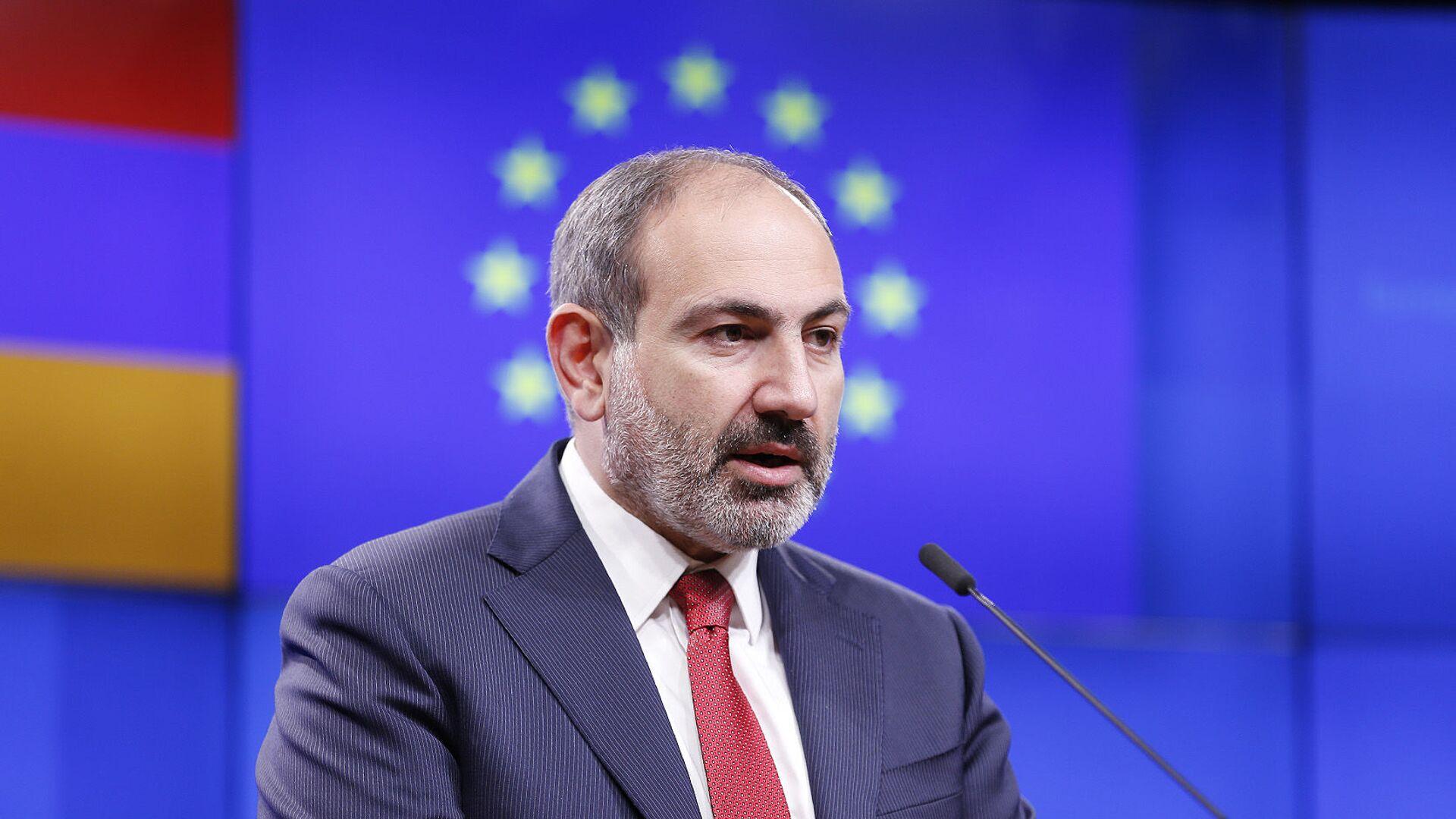Armenia’s EU future, current challenges Pashinyan’s diplomatic maneuvering
On July 1, Armenian Prime Minister Nikol Pashinyan addressed the "Armenian Forum for Democracy". According to Armenian media, Pashinyan's response to the following question-request from the leader of the European Party of Armenia, Tigran Khzmalyan, aroused the greatest interest. "We have initiated a proposal to hold a referendum on Armenia's accession to the EU. I ask you to help ensure that the people have the opportunity to express themselves independently."
This statement by the pro-European opposition figure prompted Pashinyan to give a rather extensive reply. "We are being told that we should hold a referendum to show that the people support the idea of becoming an EU member. I myself have stated that Armenia is ready to be as close to the EU as the European Union deems possible. If I thought that the people of Armenia did not share this idea, I would not have made such a statement," Pashinyan initially remarked.
Thus, Pashinyan declared to the pro-Western political wing that Armenia does not need to formalize the political will for EU accession, as his statement itself represents this highest political will.
It seems that Pashinyan does not currently need a referendum on Armenia's EU membership for two reasons. Firstly, he is not yet ready to dramatically express "will towards Europe" against the backdrop of Russia continuing to exert significant economic, political, and military influence in Armenia.
Secondly, he does not need the inevitable exaltation of pro-Western sentiments in such a case, which would increase the popularity of pro-Western parties and further diminish his already severely depleted rating.
Pashinyan, meanwhile, continued to expand on his point: “If we hold a referendum, then there must be campaigning before it. And when we go to the people, they will ask us questions: How, when, over what period, what steps will be taken, and does the EU even want this? Is the EU prepared for this? Can I answer that question today? No, I cannot! Because there are ongoing processes within the EU that we need to assess. Elections are held in EU countries, and the results of these elections at least raise questions.”
In other words, the Prime Minister is concerned (and it must be said, quite reasonably) that excessive enthusiasm from Armenians on this issue might meet with cold indifference from European bureaucrats, especially against the backdrop of the rising popularity of far-right parties in Europe, which are known for their opposition to EU expansion and advocating for greater independence of member states from Brussels.

However, as has happened many times before, after saying something more or less clear, Pashinyan immediately fell into the temptation of making a complex and difficult-to-understand set of legalistic statements.
“At the highest level, we have declared our political will to get closer to the EU. Recently, we discussed in a working manner that the ‘new partnership agenda’ is being translated in the press as the ‘new Armenia-EU partnership agenda’, and I am grateful to the EU Ambassador for clearly emphasizing that this is not a new partnership agenda but rather an agenda for new partnership, which is a very specific political message, including in the context of the discussed issue.”
Mikhail Sergeyevich and Viktor Stepanovich, as they say, are resting. If we try to translate this from Pashinyan-speak into plain language, it looks very much like the Armenian prime minister presented the "new partnership agenda" to the people as a maximum goal, suggesting that the issue of EU membership can be put aside (at least for the time being).
Pashinyan, as a compromise figure who is acceptable to Armenian society because it sees no better alternative, is forced to maneuver between various centers of power. In principle, he somehow managed to achieve a privileged position for Armenia, when it is possible to join the Rome Statute of the International Criminal Court (ICC), receive EU and US grants, and simultaneously engage in lucrative re-export of sanctioned goods to Russia, which enriches Armenia.
For now, all players turn a blind eye to this, either because Armenia is very important to them or, conversely, because it does not represent any significant geopolitical interest. Everyone is satisfied, and Pashinyan needs EU membership no more than the EU needs Armenia.
However, the situation could change. Both the West and Pashinyan, if circumstances demand, might seek to take another decisive step towards Armenia’s European integration — for example, by facilitating a referendum on a new constitution that would enshrine Armenia’s aspiration to become a political part of the European Union.
Theoretically, this package could also include the removal of references to the Declaration of Independence, which contains territorial claims against Azerbaijan. In theory, Europeans themselves should insist on this amendment to avoid admitting a problematic state into their ranks.
However, we are more inclined to believe that it is in Europe’s interest to keep Armenia under control but at some administrative distance, maintaining its territorial claims against Azerbaijan in its legislation in order to keep tensions high in the South Caucasus.








